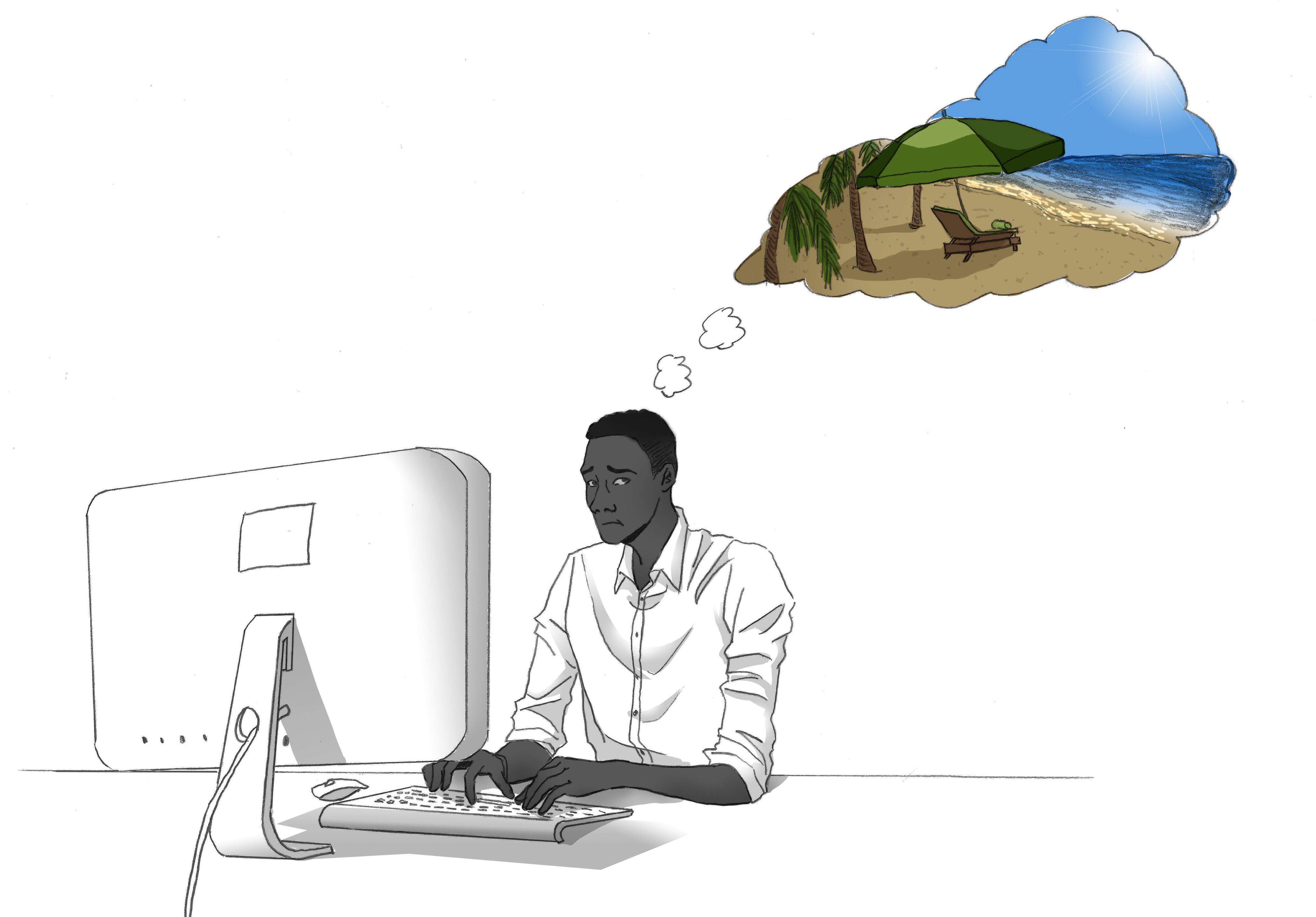It is a Tuesday morning in London, England and I am working on the third floor of a monstrous glass building. Meanwhile, thanks to worldwide internet access and the reach of social media, I am made fully aware of the fact that a group of high school friends are lounging on a beach in southern Spain. The drastic difference in summer plans highlights an important challenge that many university students, particularly at this time of year, are plagued with: How to balance the competing pressures of work responsibilities and a social life, while also navigating financial restraints. There seems to be no pathway to a perfect summer. However a student chooses to spend their summer, ‘FOMO’—the fear of missing out—is almost inevitable.
Compared to the constant activity of the academic year, the relative leisure that summertime affords may be a catalyst for self-reflection, discovery, and planning for the future. This extended period of time can lead to anxiety-inducing comments from peers and parents surrounding summer plans; not only is there pressure to find the ideal summer job or internship, but also to live a unique experience that can be the metaphorical cherry on top of a CV. This pressure is exacerbated by social media, as one is constantly exposed to the seemingly amazing summer break that others seem to be having and inherently becomes trapped in a downward-spiraling FOMO trajectory.
For many university students, summer is the time when the journey to success is simultaneously challenged and promulgated. After months of juggling extra-curricular activities, exams, and papers, students are sprung into the world of internships, short-term employment, and precarious labour by a mixture of necessity and pressure. In today’s corporate culture, there is still largely a belief that success can be measured by the number of hours you put into your office job. A 2016 article published by the World Economic Forum argued that the usual understanding of success normalized two assumptions: Firstly, that those who strive to reach the top are inherently better than those who do not, and secondly, getting to the top is the only thing that matters. At McGill, this mentality manifests in an intense, work-hard-play-hard environment.
Yet, there is also an emphasis on ‘self-care’ that emerges during the break, one that encourages students to relax and take time off from work. The expectations of both options are then hyper-exaggerated through social media platforms that advocate for either 50-hour work weeks or month-long jaunts to the coast. The pressure to have an amazing, Insta-worthy summer is just as poignant as the insistence cultivated during the academic year to obtain a 4.0 GPA. In both scenarios, success is shaped by societal views that convince people they are either not living up to their full potential or are fundamentally missing out on something.
While the value of hard work, personal success, and subsequent compensation cannot be discredited, it is extremely important to expand on society’s definition of success. Students must diverge from the antiquated status quo where office work and pulling long hours are seen as the key to obtaining a “good life.” This life cycle devalues taking time off and contributes to feelings of FOMO in people who are stuck balancing their duties and pleasure. Yet, when discussing success, students should strive to pursue what they perceive as valuable, beyond the confines of what is deemed successful. In the simplest of terms, finding a healthy relationship between work and a social life comes with balance. So when people ask me what I did this summer, I’ll take a moment and say: “It was a success” – not because I went on some earth-shattering voyage or got the work experience of a lifetime but because I finally acknowledged a balanced lifestyle which helped me accept and even enjoy my day to day.










love this illustration by “Sabrina ______” !!!!!!!!!!!